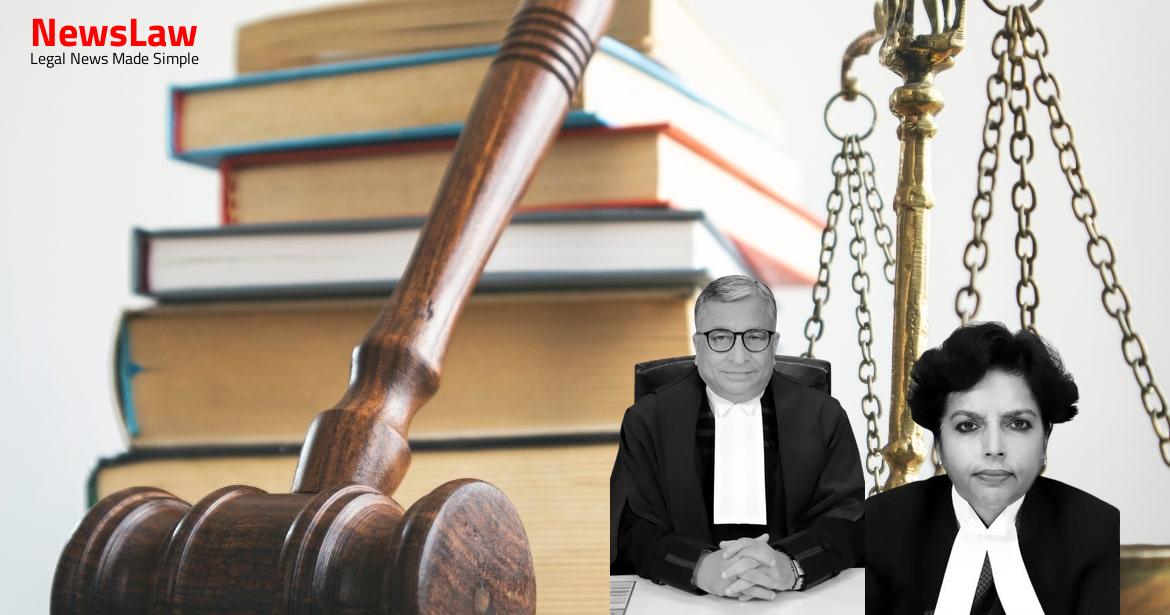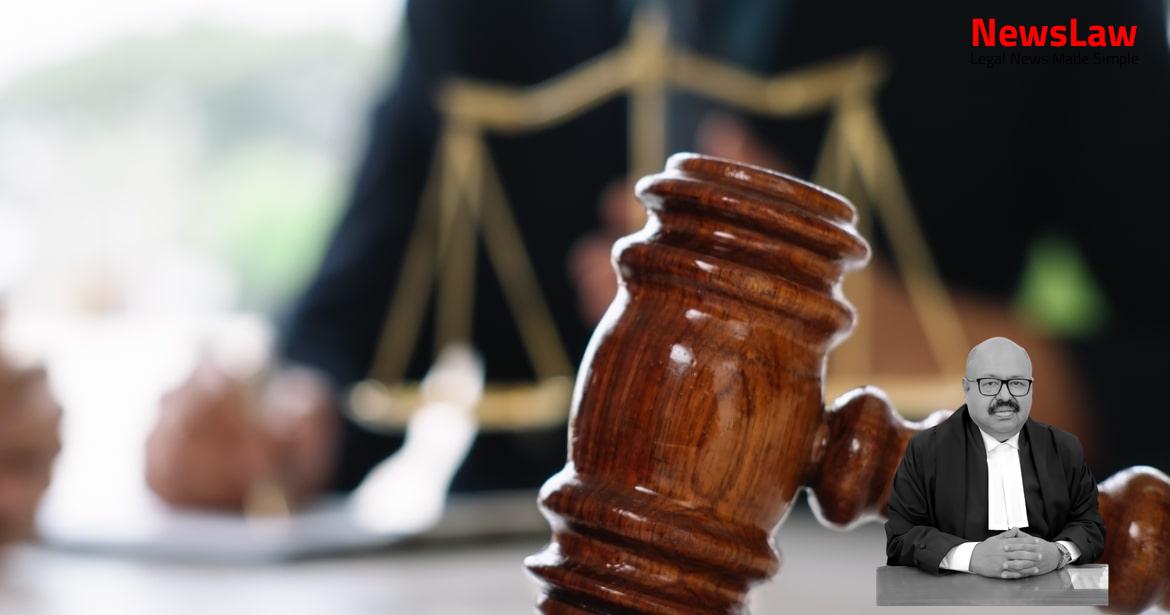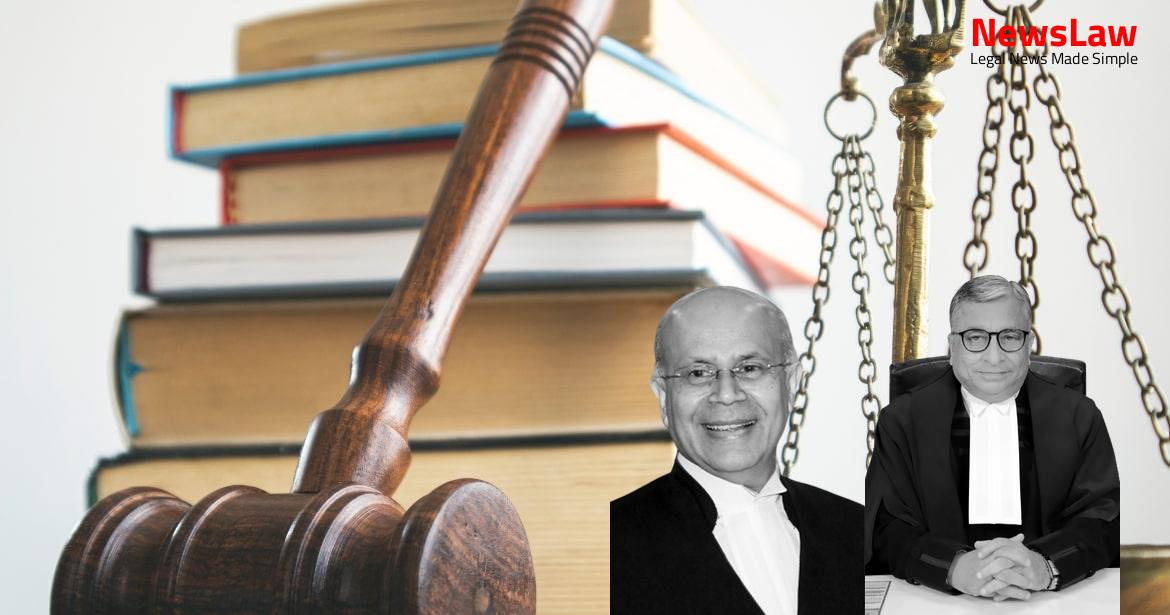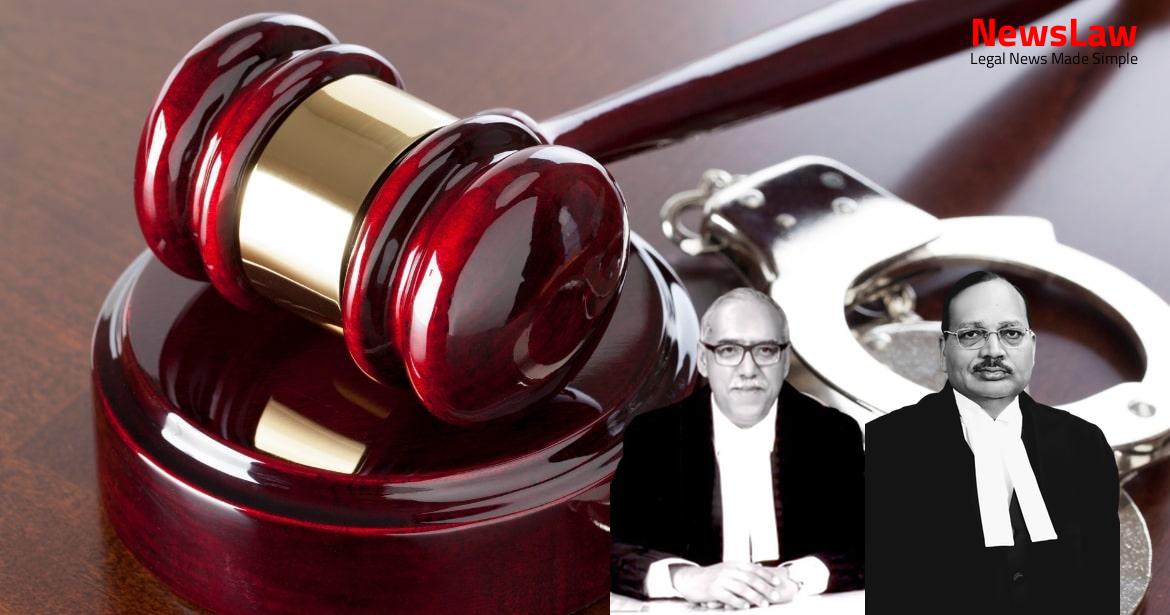Explore the in-depth legal analysis by the court regarding allegations of bias in a Commission of Inquiry. The case delves into the necessity of substantial evidence to prove conflict of interest, emphasizing the significance of verified information over mere suspicions. Stay informed about the key principles of natural justice and impartiality in legal proceedings through this insightful examination of the case.
Facts
- The petitioner filed a criminal miscellaneous petition seeking the scrapping of the Judicial Commission constituted by the State and the formation of a SIT to investigate the issues raised.
- Allegations of conflict of interest and potential bias were raised against the Chairman, Dr. Justice B.S. Chauhan, and Member, Shri K.L. Gupta.
- Various writ petitions filed in public interest were considered together with the petitioner’s petition.
- The State Government proposed Dr. Justice B.S. Chauhan as Chairman and Mr. K.L. Gupta as Member of the Commission.
- The writ petition sought a Writ of Mandamus to take action regarding the destruction of properties of accused Vikas Dubey and to safeguard his life.
- Before the petition was considered, Vikas Dubey was killed by the police in an alleged encounter.
- The State Government formed a Special Investigation Team and a Commission of Inquiry under the Commission of Inquiries Act, 1951, headed by former Judge Shri Justice Shashikant Agrawal.
- Upon suggestion by the Court, the State Government expanded the composition of the Commission, which was accepted by the Court.
- The petitioners were granted the liberty to apply to the Inquiry Commission to be heard in the matter.
Also Read: Legal Analysis on Arbitration Petition Limitation Period
Arguments
- Objection raised to continuation of Dr. Justice B.S. Chauhan as Chairman of the Commission.
- Allegation based on news report stating his brother and relative are legislators from Bhartiya Janata Party.
- No material on record other than the article in ‘The Wire’ dated 29.07.2020 supporting petitioner’s claims.
- Petitioner relied on the case of Ranjit Thakur vs Union of India & Ors. (1987) 4 SCC 611
- Likelihood of bias in the mind of the party was considered sufficient for complaint according to the mentioned case
- In Ranjit Thakur case, the nature of respondent No.4’s involvement in punishing the appellant and subsequent participation led to bias
- The position of bias was accepted in the Ranjit Thakur case
Also Read: Analysis of High Courts’ Jurisdiction and Court Orders Under Article 142
Analysis
- The petitioner, an advocate from Mumbai, filed a Public Interest Litigation regarding an incident in Uttar Pradesh.
- Allegations of bias against Commission members, based solely on unverified newspaper reports, were considered unacceptable.
- Relationships of Commission members with politicians and police officers were deemed insufficient to prove bias or conflict of interest.
- The Inquiry Commission’s functions and role under the Commissions of Inquiry Act were highlighted as well-defined.
- The Court emphasized the need for caution in accepting claims based only on newspaper reports, citing lack of evidentiary value.
- The principle regarding the findings of an Inquiry Commission not being binding on the court has been established through various legal cases.
- Bias by interest disqualifying a Judge can arise from pecuniary interest or personal interest in the outcome.
- The duty to act fairly and impartially is mandated by the principles of natural justice, even in proceedings before an Inquiry Commission.
- To sustain a plea of reasonable apprehension of bias, there must be cogent, uncontroverted, and undisputed material; vague suspicions are not sufficient.
- Petitions based solely on newspaper reports are deemed insufficient for verifying the accuracy of their content.
- There are sufficient safeguards in place for the inquiry process.
- The petitioner’s repeated applications are causing delays in the inquiry and are unnecessary.
Also Read: Electoral Malpractices in Mayor Election
Decision
- The report of the enquiry is ordered to be filed in the petitions filed before the Court.
- The petition/application is deemed to be without merit and is dismissed.
Case Title: GHANSHYAM UPADHYAY Vs. THE STATE OF UTTAR PRADESH (2020 INSC 499)
Case Number: W.P.(Crl.) No.-000177 / 2020



